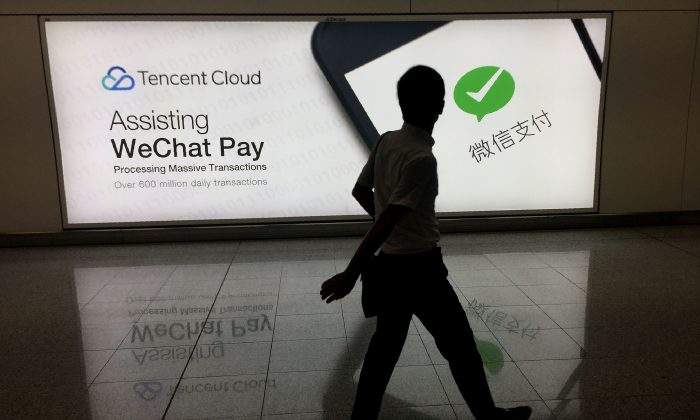Trump’s WeChat Ban a Warning Shot to Chinese Tech Firms: Expert

On Aug. 6, the president signed the two orders barring U.S. citizens and entities (government and businesses) from conducting commercial transactions with the parent companies of both apps, ByteDance and Tencent Holdings.
The bans will take effect 45 days from Aug. 6 and has already sent the share price of WeChat’s parent company Tencent on a downward trend.
Tencent is a major Shenzhen-based digital conglomerate with extensive ownership stakes in 480 different businesses and entities globally. It has stakes in well-known businesses including Epic Games, Activision Blizzard, Reddit, and Atomwise as well as Australian companies Afterpay, and Airwallex.
In recent times, Chinese-backed tech firms, including Tencent, Zoom, and Huawei, have come under increased scrutiny due to security and privacy concerns over their products.
These concerns stem from Beijing’s 2017 National Intelligence Law that compels China-based companies to share data with the regime if needed.
Michael Shoebridge of the Australian Strategic Policy Institute told The Epoch Times on Aug. 11 that the executive orders from Trump will “heighten scrutiny” around WeChat globally, but more importantly, is a sign that scepticism around Chinese-backed tech will continue to escalate.
“This is a step on from the 5G debate,” he said.
“It may be the start of strategic competition coming to e-commerce, with a recognition by policymakers that the growth of particular digital platforms can provide a way for governments [such as Beijing] to obtain data and conduct cyber operations,” he added.
The ubiquity of WeChat’s services and strong evidence of censorship on the platform, means the app remains a threat to national security:
“WeChat is more than a social media messaging application, it is also a large e-commerce platform with reach not just in China, but into southeast Asia, and growing internationally,” Shoebridge pointed out.
“Chinese regulation of the platform and its operations inside China is strong, and it is hard to disentangle these operations from its global operations,” he continued.
Matt Warren, professor of cybersecurity at the Royal Melbourne Institute of Technology told The Epoch Times on Aug. 11 that the ban would have a limited impact on WeChat’s current incarnation with most of its userbase located in Asia.
However, he believed it would “impact any future plans of growing beyond their Chinese focus.”
For example on June 29, the Indian government made headlines by outright banning 59 Chinese-backed apps from the country.
“The ban impacted 300 million Indian users who were using these Chinese apps including WeChat,” Warren said noting that the ban effectively stymies WeChat’s ambitions in its largest overseas market.
“It is likely that the United States will follow India with new regulations, and Australia will wait to see what happens before they take any action,” he added.
Australia is estimated to have over three million individuals using WeChat, with 38 percent of users being non-Chinese language speakers.
The high proportion of non-Chinese speaking users is due to WeChat being a popular platform for local businesses to transact and market to Chinese customers and tourists.
For example, WeChat Pay is a service which allows individuals to make purchases by drawing funds from a bank account in China. Many Australian tourism operators or restauranteurs currently use the service to attract Chinese customers.
There are concerns the Trump administration will continue tightening regulation around Chinese apps, especially in light of the recent proposed ban on TikTok in the United States, and U.S. Secretary of State Mike Pompeo’s “clean network” initiative.
A ban on WeChat would have ramifications for businesses and the Chinese-speaking diaspora, particularly if the Australian government decides to follow suit.
“The banning of WeChat in Australia would have an impact on the estimated three million users of WeChat (more than TikTok with 1.6 million users) who use it to keep in contact with family and friends in China,” Warren said.
“Those users now have limited access to many western apps which are barred by the Chinese Fire Wall.”
Photo: A man walks past an advertisement for the WeChat social media platform, owned by China's Tencent, at Hong Kong International Airport on Aug. 21, 2017. Richard A. Brooks/AFP/Getty Images




